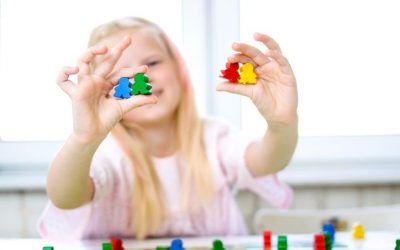Adolescents and young individuals, much like adults, may find benefit in mental health counseling. Given that numerous mental health issues emerge during the formative years, seeking assistance for your teenager is a proactive step. Early intervention, prior to reaching a crisis point, yields substantial advantages for the mental well-being of adolescents. Our counseling services for teens encompass a tailored selection of therapeutic approaches, including cognitive-behavioral therapy, family therapy, and expressive therapies such as play or art therapy.
Cognitive Behavioral Therapy for Teens
Cognitive-behavioral therapy (CBT) stands out as a widely recognized form of mental health counseling for teens. This personalized approach addresses specific concerns such as anger management, depression, anxiety, disordered eating, substance abuse, and self-harm. The focus of CBT is to guide teens in examining and modifying their responses to mental health conditions. By assisting them in altering thought patterns and reactions, CBT aims to equip teens with appropriate coping mechanisms and eventually reduce or eliminate harmful behaviors.
Family Therapy for Teen Mental Health
Recognizing the interconnected dynamics within a family, our counseling extends to family therapy when a teen seeks assistance. Acknowledging that a teen is influenced by their environment, family therapy targets the enhancement of relationships within the household. Through the guidance of a strategic family therapist, family members learn effective communication skills and share concerns in a secure environment, fostering understanding and support for the troubled teen.
Play, Art, or Other Therapy for Teens
Contrary to common perception, play therapy and art therapy are valuable tools not only for young children but also for teens and adults. These expressive therapies harness the creative process to address trauma and facilitate healing. Art therapy, for instance, enables teens to explore their emotions, manage behaviors, develop social skills, alleviate anxiety, and enhance self-esteem. It is important to note that art therapy is not an art lesson but rather a therapeutic session focused on counseling.
Conclusion
At Family Strategies Counseling and Mediation, our emphasis lies in a targeted set of counseling techniques tailored for teens. Central to our approach is cognitive-behavioral therapy, emphasizing the modification of behavior and thought patterns. Recognizing the family’s impact on a teen’s well-being, family therapy is recommended to address communication patterns contributing to mental health concerns. Additionally, we integrate play and art therapy to aid teens in processing trauma, navigating emotions, managing behaviors, and fostering improved self-esteem.
Family Strategies Counseling and Mediation is a counseling office specializing in individual, couples, and family therapy. Our diverse and credentialed staff offers a range of services both in-person and online. For more information about our team, visit our about page or contact us at (708) 798-5433 with any questions or concerns. Explore our latest posts on child therapy for additional insights.
Latest Posts About Child Therapy
Why You Should Book with Family Strategy Interns for Affordable Mental Health Treatment
Why You Should Book with Family Strategy Interns for Affordable Mental Health Treatment Affordable Therapy Near Me: The Solution You've Been Looking For Mental health is crucial for our well-being. However, finding affordable therapy can be challenging. At Family...
Things to Keep in Mind When Your Child Learns of Your Divorce
When a marriage ends, the whole family feels the effects. Children, in particular, can have a range of reactions depending on their age and personality. Overall, children need stability, safety, and love to thrive. All these things might be even easier to achieve...
Play Therapy to Teach Empathy to Children
Are you concerned your child might not be empathetic enough? Empathy is the ability to imagine how someone else feels in a particular situation and respond with care. It's a very complex skill to develop, and some children struggle to grasp that others feel...




